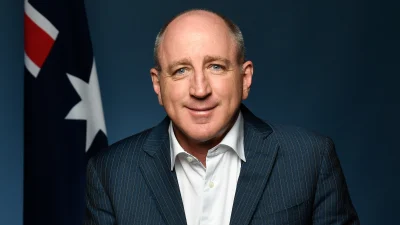Westpac profit holds up, almost


Westpac Banking Corporation has managed to weather the global financial crisis in reasonable shape, reporting just a 1 per cent decline in net profit to $2.1 billion for the six months ended March 31, albeit that cash earnings were down 6 per cent.
The result will see the banking group reduce its dividend as part of what it describes as efforts to conservatively manage its capital. It will pay a fully franked interim dividend of 56 cents, down 20 per cent on the prior corresponding period.
Importantly, however, the banking group reported that BT Financial Group, which now incorporates St George’s wealth business, had reported a fall in cash earnings of 17 per cent.
It said the result had been impacted by lower fees from funds under management and fund administration related to weaker business.
The BT analysis said that the funds business had seen net positive flows of $0.6 billion and, like other wealth management operators, it had seen improved sales within its insurance business.
Commenting on the result, Westpac chief executive Gail Kelly said she believed the banking group had performed soundly in a very challenging operating environment.
Looking to the future, she said that while it appeared some of the severe stresses of the financial crisis had now stabilised, the more dominant impact on Westpac would be the size and duration of the recession in its home economies of Australia and New Zealand.
Kelly said while larger impairments associated with the impacts of the global financial crisis appeared largely behind the bank, it was seeing more pressure across its business customers and expected consumer stress to grow as unemployment rose.
She said that, as a result, Westpac expected impairment charges to remain at a high level throughout the second half of this year and into 2010.
Recommended for you
In this episode of Relative Return Unplugged, hosts Maja Garaca Djurdjevic and Keith Ford are joined by AMP chief economist Shane Oliver to take a look at what can be learned from 2024 as attention turns to what markets will do in the new year.
Join us for a special episode of Relative Return Unplugged as hosts Maja Garaca Djurdjevic and Keith Ford are joined by shadow financial services minister Luke Howarth to discuss the Coalition’s goals for financial advice.
In this special episode of Relative Return Unplugged, we are sharing a discussion between Momentum Media’s Steve Kuper, Major General (Ret’d) Marcus Thompson and AMP chief economist Shane Oliver on the latest economic data and what it means for Australia’s economy and national security.
In this episode of Relative Return Unplugged, co-hosts Maja Garaca Djurdjevic and Keith Ford break down some of the legislation that passed during the government’s last-minute guillotine motion, including the measures to restructure the Reserve Bank into a two-board system.










